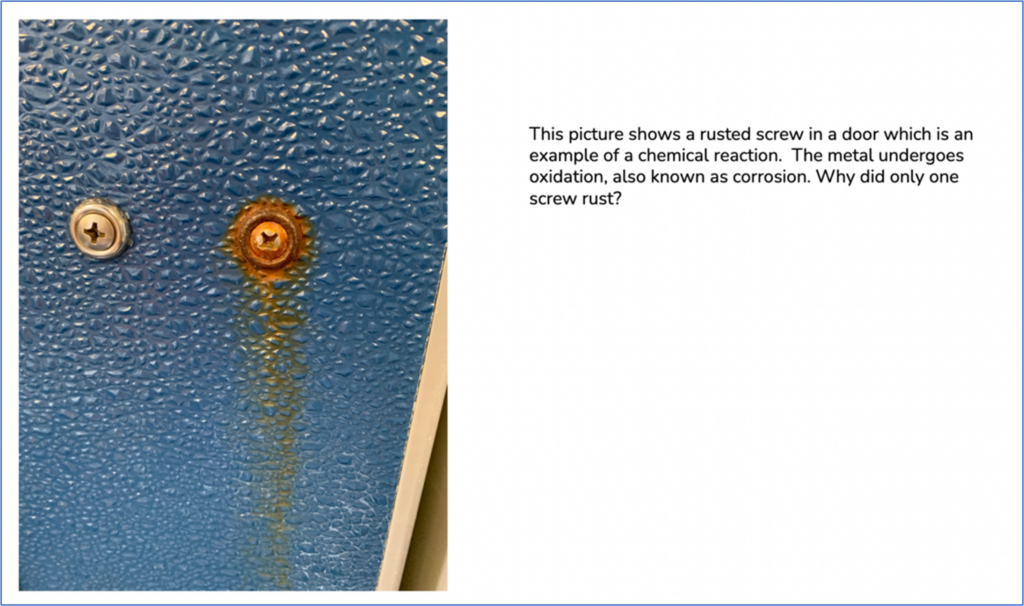Content-Area Literacy
Chemical Phenomena in Everyday Life: An Adventure in Writing Across the Curriculum

A student photo, description, and question created during the Chemistry in Action activity.
“Connections to everyday life provide the glue to help chemistry concepts stick. The shared experience of observing, wondering, writing, and talking about these concepts absolutely enhanced learning in my classroom. On a bigger scale, there are many studies that support the claim that writing improves student learning. Interestingly, Rivard and Straw found that writing and talking about science concepts improve retention even more than those students who only write.”
Read the original article at the American Association of Chemistry Teachers to learn exactly how Laurie planned and implemented this experience.
Also Recommended
See allComposing Science
Another tremendously useful resource is this interview with the authors of the NWP book Composing Science. The focus is science, but the lessons learned can be easily translated across disciplines.
Read more

